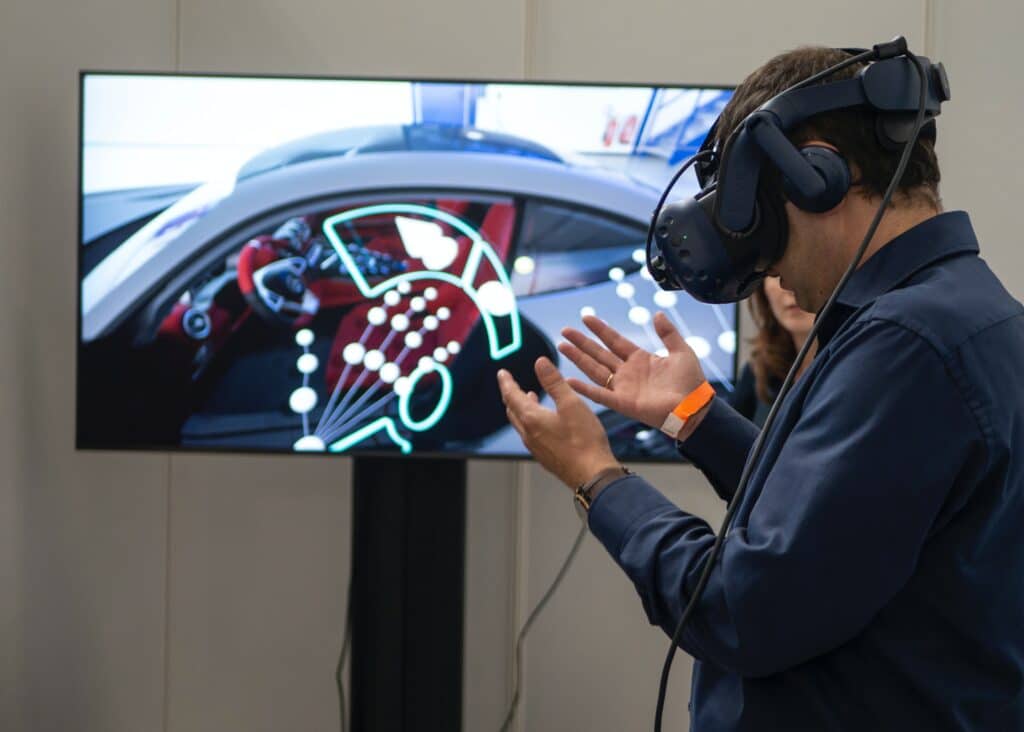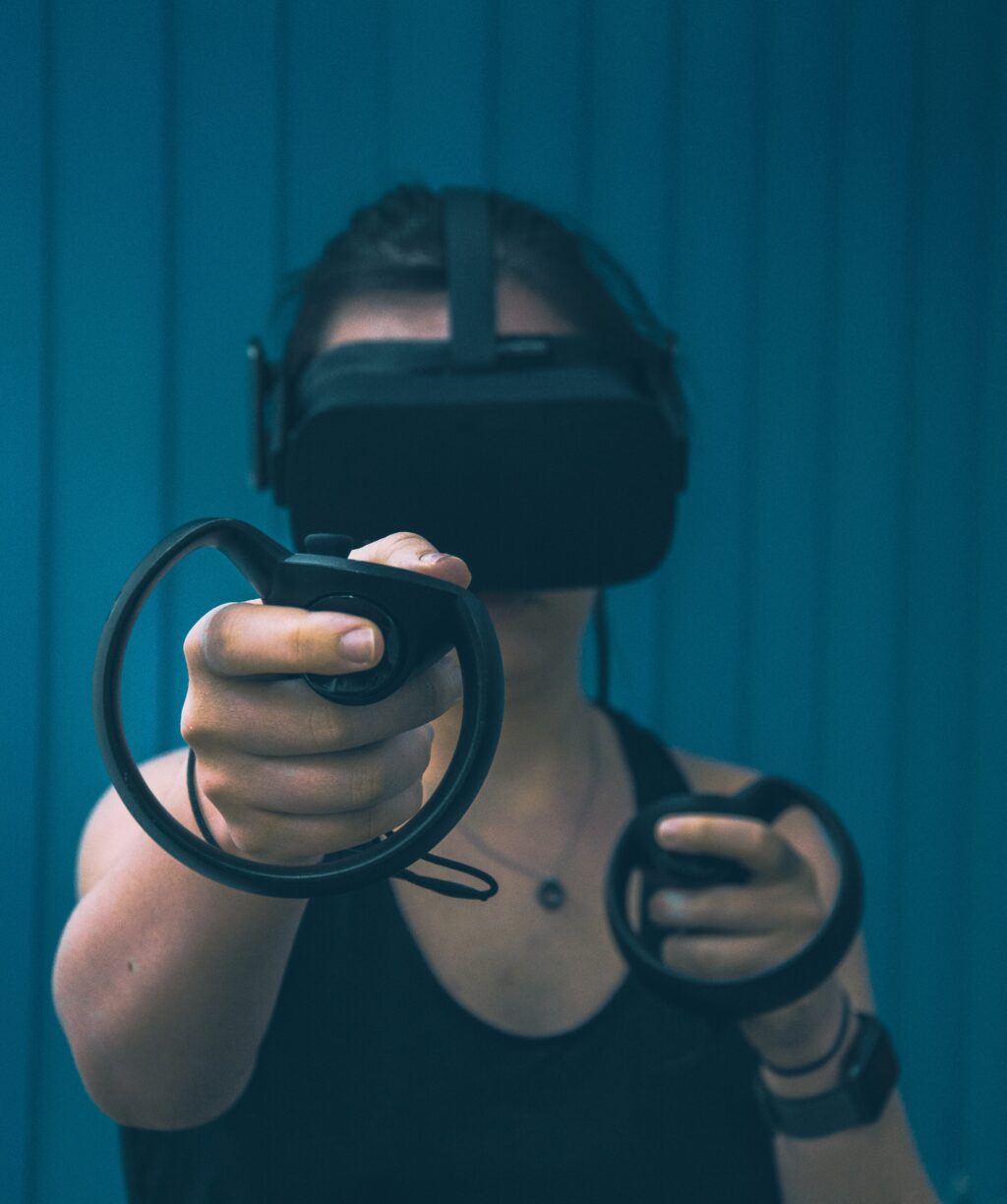Virtual reality (VR) technology has come a long way since its conception. With rapid advancements, VR is set to transform various aspects of our everyday lives.
In this article, we will explore some of the latest developments in VR technology and discuss their potential impacts on different facets of our daily existence, including entertainment, communication, and beyond.
IMAGE: UNSPLASH
High-fidelity Immersion
Recent breakthroughs in VR technology have resulted in an extraordinary level of realism and immersion. With improvements in display resolution, field of view, and tracking technology, users can now truly feel as if they have been transported to another world.
This unparalleled sense of presence will revolutionize the way we socialize, consume content, and interact with digital environments.
Workplace Applications Of VR
Virtual reality technology can provide numerous benefits to the workplace, streamlining the way businesses operate. From virtual meetings and conferences that save time and resources to remote employee training, VR enables global collaboration and productivity.
Additionally, architects and engineers can utilize VR to visualize and optimize their designs, leading to more efficient project execution and resource management. The implementation of kiosks for self-service in various industries is another example of technology enhancing workplace efficiency.
Immersive Entertainment And Gaming
As VR gaming becomes more popular, developers continue to push the boundaries of what is possible within these virtual worlds. From casual experiences to full-fledged, immersive games, VR brings a new level of engagement and excitement to entertainment.
This revolution extends beyond gaming, as artists and designers explore the potential of creating immersive exhibitions, concerts, and interactive installations in the virtual space.
Virtual Travel And Exploration
Imagine standing on top of Mount Everest or walking through the narrow streets of a bustling foreign city, all from the comfort and safety of your own home. As VR technology improves, so do the quality and realism of virtual landscapes.
This digital tourism will offer users the opportunity to explore remote and inaccessible locations, as well as provide a more eco-friendly alternative for recreational travel.
Education And Training In Virtual Environments
Virtual reality offers unique opportunities for education and training that were previously unattainable. Immersive learning experiences can help students grasp complex concepts and develop valuable skills. VR can also be used to safely simulate high-risk situations for emergency responders, military personnel, and surgeons, providing valuable training without real-world consequences.
SocialVR: Building Connections In The Virtual World
Virtual reality will redefine the way we socialize online. With SocialVR platforms gaining popularity, people can interact with each other in immersive, 3D environments, taking social networking to new heights.
These virtual spaces offer limitless opportunities for interaction, enabling users to make friendships, form social groups, and engagingly collaborate on projects, transcending geographical boundaries.
VR In Healthcare And Rehabilitation
One of the most promising applications of VR technology lies in healthcare and rehabilitation. From teleconferencing with healthcare professionals to performing physical therapy exercises, VR can help patients seek the medical attention they need from their own homes.
Additionally, VR simulations can be used as a rehabilitation tool for patients recovering from traumatic events, such as strokes or brain injuries, by providing a controlled and adaptable environment for relearning lost skills.
Accessibility And Inclusiveness In Virtual Reality
As virtual reality continues to grow, efforts are being made to ensure it is accessible and inclusive for users with disabilities. Developers are working on adaptive technology solutions to make VR experiences available to a wider audience.
By incorporating features such as customizable interfaces, alternative input devices, and more, VR experiences can be made accessible to everyone, regardless of their cognitive or physical abilities.
Psychological And Therapeutic Applications
Virtual reality has the potential to provide immense therapeutic benefits across various fields of mental health and well-being. Tools like mindfulness and meditation apps can give users the chance to unwind and de-stress in virtual environments.
Additionally, VR can offer valuable advancements in therapy for individuals with phobias or anxiety disorders, allowing them to face their fears and challenges in a controlled setting under professional guidance.
Conclusion
The future of virtual reality promises exciting possibilities for our everyday lives, as advancements in technology continue to redefine the ways we interact, communicate, and entertain ourselves.
With every new application and innovation, we move closer to a world where virtual and physical realities merge, expanding our horizons and enriching our experiences in ways we have yet to imagine.
IMAGE: UNSPLASH
If you are interested in even more technology-related articles and information from us here at Bit Rebels, then we have a lot to choose from.


COMMENTS